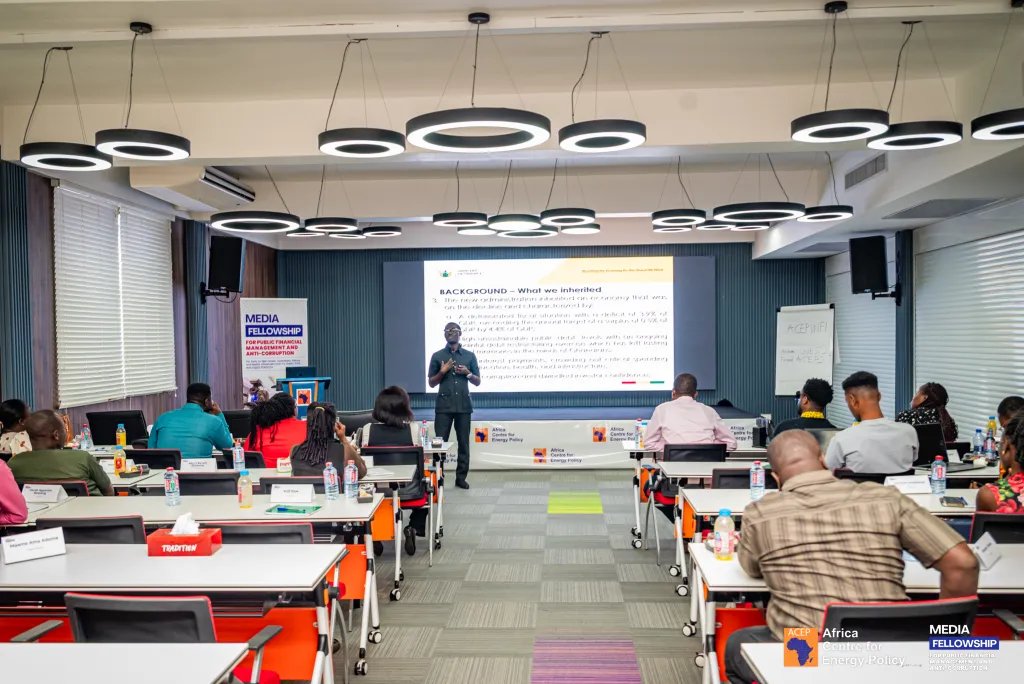ACEP Trains Journalists on Public Financial Management Reporting
The Africa Centre for Energy Policy (ACEP) has organised a two-day training workshop to build the capacity of selected journalists on reporting public financial management (PFM) issues.
The training, held from August 14 to 15, 2025, focused on strengthening the role of the media in holding government institutions accountable, particularly in light of the recent review of the Public Financial Management Act.

The amended law introduces stricter sanctions for fiscal breaches, including the possibility of censure of the Finance Minister and imprisonment of heads of government entities found culpable of contributing to fiscal slippages.
Participants were taken through common forms of corruption, including procurement fraud, mismanagement of natural resources, overpricing of projects, tax evasion, embezzlement, bribery, and influence peddling. They were also equipped with investigative techniques such as research, data analysis, document examination, whistleblowing, and surveillance.
Key sources of information for journalists were highlighted as the national budget, parliamentary hansard, audit reports, Extractive Industries Transparency Initiative (EITI) reports, and the Public Interest and Accountability Committee (PIAC) reports.

Trainers also pointed to barriers to investigative journalism, including limited access to data, lack of technical expertise, inadequate safety, weak public trust, resource constraints, and ethical dilemmas.
Solutions proposed included reliance on the Right to Information Act, the use of multiple sources, data verification, pre-publication reviews, and collaboration with NGOs and civil society groups like ACEP.
Speaking at the workshop, Dr Charles Ofori of ACEP disclosed that projected shortfalls from under-recoveries in the power sector are expected to hit GH¢97.62 billion between 2023 and 2026.
The annual breakdown is GH¢23.65 billion for 2023, GH¢22.94 billion for 2024, GH¢24.94 billion for 2025, and GH¢26.09 billion for 2026.

The Energy Sector Recovery Programme (ERSP), he said, estimated realised power sector shortfalls of about $8.25 billion between 2019 and 2024. Currently, Ghana’s budget is weighed down by approximately $1.5 billion annually due to power sector under-recoveries.
“If government is able to resolve the power sector under-recoveries, it can free up enough resources to invest heavily in other critical sectors to meet the country’s social development needs,” Dr Ofori stated.








